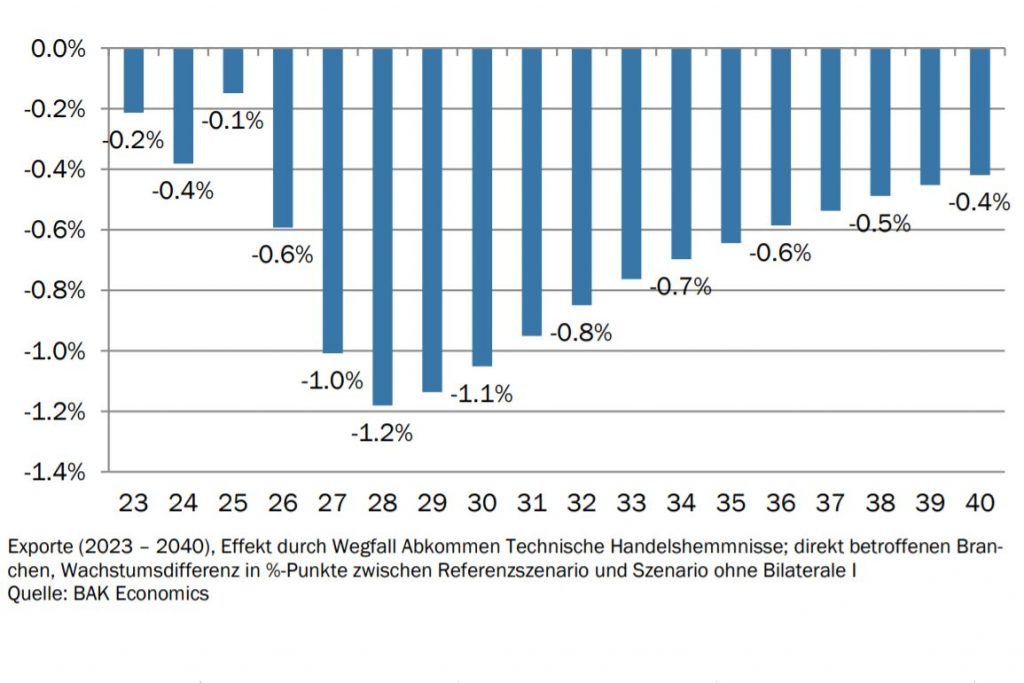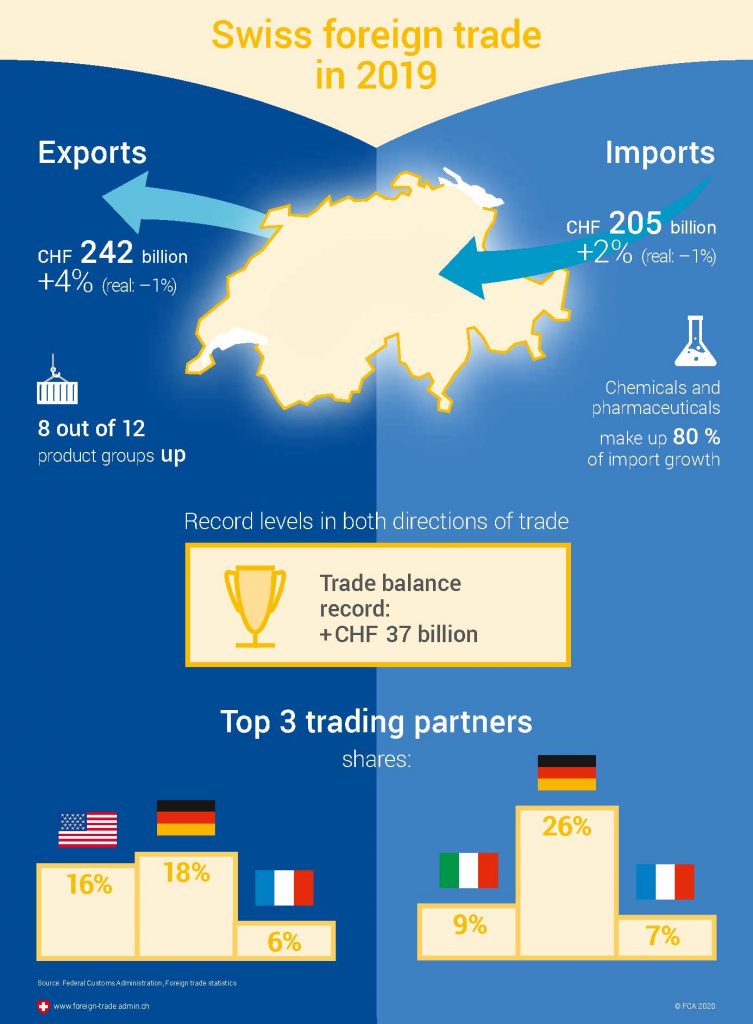BAK Economics: “There is alarm about the outlook for exports.”
According to the Basel-based research institute, an increase in technical barriers between Switzerland and the EU would lead to industry declines of 12 percent by 2040…
The still unclear future of the relationship between Switzerland and the European Union has a negative impact on the prospects of the Swiss export industry.
With negotiations on the framework agreement still ongoing, as of May 26 there is a real threat of significant losses in sectors affected by increased technical barriers to trade.
This is the view of BAK Economics, which states that increased technical barriers could reduce exports of goods from directly affected sectors by a cumulative 12 percent by 2040.
Wegfall Bilaterale Vertraege Ostschweiz Tech Bericht Umsetzung Gesamtwirtschaft
Bak Basel studie wegfall der bilateralen
Overall, the abolition of the Bilateral Agreements would mean a reduction in Swiss GDP per capita of 5.5% by 2040 and thus a substantial loss of prosperity.
The export-oriented Swiss economy is closely linked to stable trade relations and thus to the relevant agreements with the EU in order to be able to continue to make its contribution to Switzerland’s success.
Thus the Swiss export industry speaks to the government

Need a “framework agreement” or clear alternative
All of this would fall apart without the conclusion of a framework agreement or a clear alternative solution.
By not evaluating the content of the framework agreement between Switzerland and the EU in its entirety, its non-implementation is already having a negative economic impact which will be further aggravated as of 26 May.
Without an adaptation of the Agreement on the Abolition of Technical Barriers to Trade (on Mutual Recognition of Conformity Assessments or MRAs) to technical progress, the medical technology industry will initially face higher costs.
In addition, trade between Switzerland and the EU will be even more restricted by higher financial costs and increasing administrative barriers, due to which the positive effects of “trade creation” will be lost.
To estimate the magnitude, the graph below shows the effects on the annual dynamics of goods exports of industries directly affected by technical barriers to trade.
Overall, this translates into 12 percent fewer exports by 2040.
IPI and Swiss export industry join forces

From 26 May double registration for medtech products
Swiss exporters in the medtech sector will be specifically affected from May 26.
They will have to certify their products twice and register an “authorized representative”. The same applies to exports from the European Union to Switzerland.
These duplications lead to an increase in the cost of Swiss exports and a reduction in competitiveness on international markets.
It will then be consumers and companies directly affected by the price increase.
“EU market access if it serves Swiss competitiveness.”

Remedies: less price pressure and domestic production
As BAK Economics’ simulations show, some of these burdens can be offset by countervailing effects, for example through reduced price pressure through lower capacity utilization or increased production at home (import substitution).
Nevertheless, if the Bilateral Agreements fall, total Swiss exports in 2040 will be about 2.4 percent lower than they would be if the Bilateral Agreements were maintained.
This will dampen the economic outlook and also lead to a deterioration in the labor market situation, causing negative effects on private consumption.
Overall, there is the threat of a 5.5 percent decline in GDP per capita within 18 years, which represents a significant loss of prosperity.
Industry depends on stable functioning and access to global markets.
This is especially true for our by far most important trading partner: the EU.
A timely, sustainable and substantial solution with the EU is therefore essential for Switzerland’s economic dynamism.
World Expo in Dubai: the Swiss Pavilion is already ready

Export industry already antidote to pandemic crisis
The framework agreement therefore offers an opportunity, at least according to the Basel research institute. Only in this way can the export industry continue to make a reliable contribution to Switzerland’s prosperity in the future.
The crisis caused by COVID-19 has just shown how important this is: it was only thanks to the export industry that the economic collapse in Switzerland did not turn out to be much more severe, especially during the second and third waves.
Nor would the government’s extensive support measures for the service sector have been possible without a stable, value-creating industry.
Swiss SMEs have saved more than 2 billion on duties







